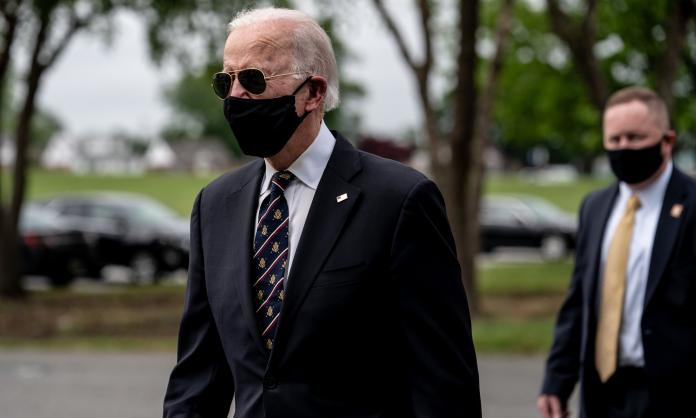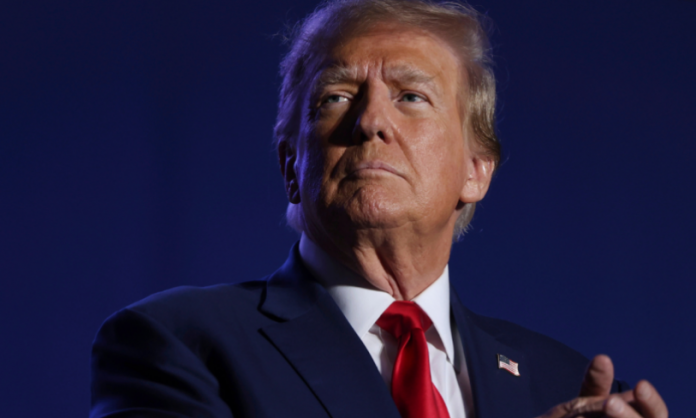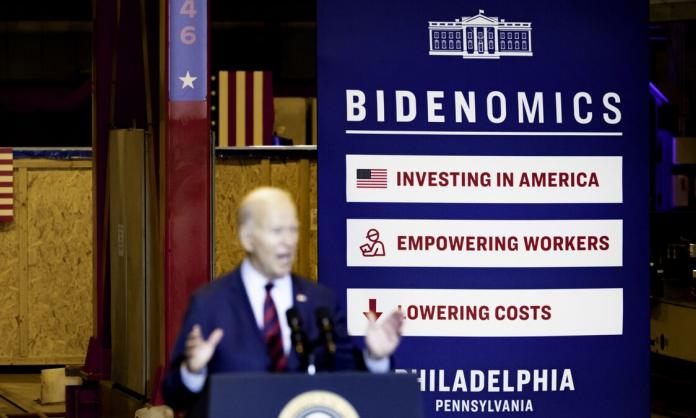The United States is the most important country on the planet. Not because its arsehole politicians say so, but because it is the largest imperialist power, and political and cultural developments in America are always exported to the rest of the world.
Sometimes the influence is positive, as with Black Lives Matter, which generated solidarity demonstrations and spurred a focus on anti-racism across the globe. Often, it’s a negative influence, like the perpetual wars that kill millions and draw the scores of other countries into the fray. Or its major corporations providing a model of how to exploit workers across the globe and destroy the planet.
Whether good or bad, the influence and impact are real, and understanding what’s going on in the US is important for anyone who wants both to understand and to change world politics. So what are the key things to know?
First is that the country is gripped by an incredibly deep polarisation, both economically and politically. While Donald Trump appeared as a catalyst, it’s better to think of him as an expression of a longer-term malaise. For many decades, going back to the 1970s, the US has become an increasingly unequal society under both Democratic and Republican administrations: stagnant incomes for workers, collapsing infrastructure in poorer communities, degenerative diseases and drug epidemics among the working class, tremendous wealth inequality and widespread food insecurity, high levels of police violence and incarceration. In fact, large sections of the population live in something of a permanent crisis.
There are intense levels of racist resentment among a significant section of the population angry about the country’s demographic changes (whites are projected to become a minority in the US in coming decades). That resentment has most clearly manifested in, and been constantly stoked by leaders of, the Republican Party. But Democrats like current President Joe Biden have historically been at the forefront of it as well. Biden, for example, took credit for writing a 1990s crime law that dramatically increased incarceration rates, particularly among Blacks.
“Let me define the liberal wing of the Democratic Party”, he said after the law was passed by Congress. “The liberal wing of the Democratic Party is now for 60 new death penalties. That is what is in this bill. The liberal wing of the Democratic Party has 70 enhanced penalties ... The liberal wing of the Democratic Party is for 100,000 cops. The liberal wing of the Democratic Party is for 125,000 new state prison cells.”
The second thing to know about US politics is more encouraging. For all the vile bigotry and abuses emanating from the White House over the last four years, there were also widespread instances of resistance. “During Donald Trump’s presidency, the United States saw what were probably the largest and broadest single-day protest events, and the largest sustained protest movement, in its history”, the authors of a recent Washington Post article note. “Through Inauguration Day 2021, we counted nearly 60,000 protests and marches, with 21 million to 31 million participants.”
These protests—averaging about 40 per day—were overwhelmingly progressive in character and included huge marches for women’s rights, for action on climate change and against racist policing. Along with these major protests, there has been a generational shift in attitudes. Half of those aged 18 to 39 have a favourable view of socialism, according to a 2019 Gallup poll. And two-thirds of them would be extremely or somewhat likely to vote for a socialist candidate, according to a YouGov survey in the same year. This is a remarkable shift in the country that led the twentieth-century ideological war against communism.
The third thing to know about US politics is that, while the Republican Party has increasingly become the party of hard right conspiracy theorists, the Democratic Party has more and more become the party of the ultra-wealthy and the leaders of the repressive state apparatus. After four years of Trump, the US establishment is worried about the country’s position in the world. Primarily this is due to the ever growing economy and international influence of China. The Biden presidency is viewed as “restorationist”—that is, a moment to rebuild imperial power after Trump showed little interest in foreign interventions.
Millions of people were relieved and hopeful that the defeat of Trump would be a great step forward for both the US and world politics. But while there are a handful of progressives among elected Democrats, the party is controlled by people whose main ambition is not to lift workers and the poor out of poverty, but to re-establish US supremacy globally.
This was also a task given to former President Barack Obama, after eight years of the Republican presidency of George W. Bush were marked by calamitous invasions and occupations of Afghanistan and Iraq and then by the collapse of the financial system in 2008. The US’s standing in the world had been greatly diminished, the Iraq war in particular was incredibly unpopular, and China was rising as a global competitor to the US.
Obama, being the first Black president, gave millions of people hope that things were changing in the US. But he continued the country’s “forever wars”, opening new drone wars and continuing to finance and back dictatorships across the world. He bailed out Wall Street while millions were made homeless by the economic crisis, and he broke his promises to undocumented migrants, deporting some 3 million. (In Obama’s first three years, he deported about 400,000 more than Trump in his first three years, according to a 2019 Washington Post article by Abigail Hauslohner.)
For all of the other issues facing the United States, the ruling elite views as paramount the challenge of fighting China’s rise. Everything else—the domestic challenges of poverty, the pandemic, political polarisation and so on—is secondary. They believe that Trump was a failure in this area and that the Biden administration is best placed to construct domestic and foreign policies to this singular end. That’s why socialists have no faith or illusions in the Democratic Party.
The final thing to note about the US is related to the ruling elite’s international conundrum with China: while it is an exporter of politics, America remains bound within the world capitalist system that it leads. And the conditions that gave rise to Trump, and the growth of the far right that accompanied his four years in office, remain despite him being booted out of office. In fact, those conditions may now be deteriorating under the impact of the ongoing pandemic and the associated economic crises, both within the US and around the world. As that tension develops, more resources will be made available to counter China, resources that largely will come at the expense of US workers and workers around the world.
While Biden may be viewed by some as a bit of fresh air compared with the toxic smog of Trumpism, the odds are that we are in for a period of greater confrontations, rather than fewer. Some of those confrontations will need to be resisted—such as the far right stoking racist violence and any push to regional wars. Others will need to be celebrated—such as protest movements against police violence, for workers’ rights and against war.










